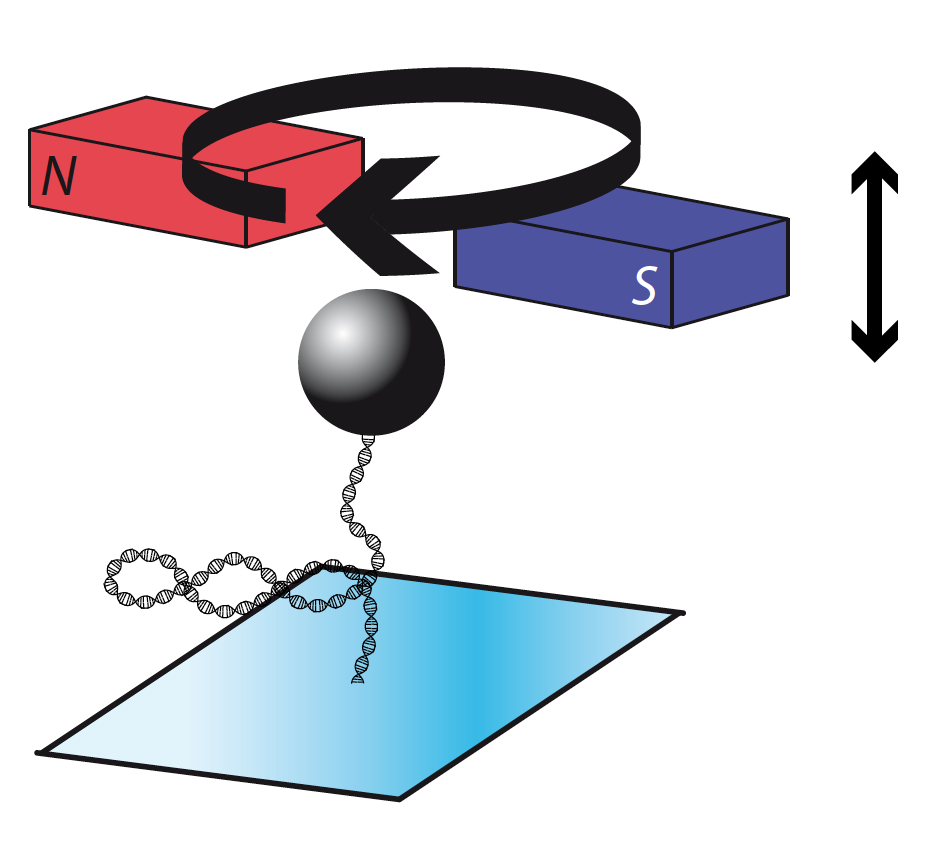G5b: Supercoiling DNA by magnetic tweezers
Advanced biophysis lab (Blockpraktikum Biophysik - Praktikumsversuch G5b)
In this lab course, the mechanical properties of individual double-stranded DNA molecules are characterized by magnetic tweezers, a popular technique for the manipulation and study of bio-macromolecules.  A pair of permanent magnets induces a strong magnetic field gradient in close proximity to a probed surface and allows for highly sensitive force spectroscopy - typically in the range below 50 pN down to some fN.
A pair of permanent magnets induces a strong magnetic field gradient in close proximity to a probed surface and allows for highly sensitive force spectroscopy - typically in the range below 50 pN down to some fN.
In this experiment the magnetic force is exerted on a paramagnetic bead attached to the DNA molecule to be investigated. By rotating the magnetic field, torsion is applied to the DNA to turn the macromolecule against or in the sense of its double-helical structure. Depending on the longitudinal stretching force, different mechanical response phenomena of DNA to torsional stress will be observed (e.g. supercoiling). During this course theoretical models describing the mechanics of DNA are tested experimentally and the bending and torsional stiffness of DNA are determined.
Supervising Tutors: Yi-Yun Lin, YiYun.Lin@physik.uni-muenchen.de
Willem Vanderlinden, willem.vanderlinden@physik.uni-muenchen.de
Additional information
Updated lab manual (in English; for new set ups): [PDF]
For additional reading: Chapter from the "biophysics of macromolecules" lecture notes [PDF]

